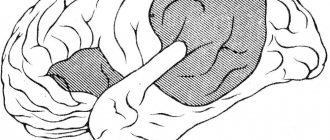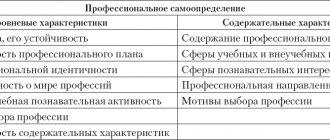Why is children's expressive speech impaired?
Home»Articles»Why is children's expressive speech impaired?
Published: May 02, 2020 at 09:56
The disorder is a developmental language disorder that is not associated with mental retardation or learning disabilities, nor is it associated with pervasive developmental disorder, neurological disorders, or hearing impairments. Expressive language disorder is a specific developmental disorder in which a child uses spoken expressive language well below the level that is currently appropriate for his or her mental age. At the same time, understanding the speech of others is at a normal level.
At school age, the frequency of these disorders ranges from three to ten percent. Moreover, boys suffer from expressive speech disorder three times more often than girls of the same age.
Expressive speech disorder often occurs in those children whose relatives include patients suffering from articulation disorders, as well as other developmental disorders. If we talk about severe forms of the disease, they usually manifest themselves before the age of three. If there are no separate word formations in simple sentences and phrases when the child is already three years old, then this is a sign of delay. Later signs of the disorder may manifest themselves in limited vocabulary development, when the child has difficulty finding synonyms, uses a set of template words, and pronounces phrases in abbreviated terms.
Also, with expressive speech disorder, prefixes and word endings are missed, there are multiple syntactic errors, etc. If this disorder is present, there may be a complete lack of consistency in retelling and presentation, however, no difficulties arise with understanding speech. Also, this disorder is characterized by the adequate use of non-verbal gestures and remarks; the child has a desire to communicate with others. In most cases, articulation is immature. Emotional compensatory reactions often occur when communicating with peers, inattention and behavioral disorders are allowed. If there is functional enuresis, or coordination disorder, then this is classified as concomitant disorders.
Causes of Expressive Language Disorder
Currently, experts do not name the exact causes of expressive speech disorder. As a possible option, untimely formation of neuronal functional systems can be accepted. If there is a family history, it may indicate a genetic origin for the disorder. It is known that the neuropsychological mechanism of the disorder is related to the kinetic component, if there is an interest in the work of the premotor brain regions, as well as the posterior frontal structures. Expressive speech disorders are often associated with the fact that the spatial representation of speech has not been formed - this means the area of the parietal temporo-occipital junction.
This is possible if there is a normal left hemisphere localization of speech centers, or dysfunction directly in the left hemisphere. Another reason may be a delay in the development of neural connections due to organic damage to the speech areas of the cortex. This mainly applies to right-handed people. In particular, there is a lot of data on the influence of genetic factors and an unfavorable social environment on the development of expressive speech. That is, when a child has constant and long-term contact with people who have a low level of speech development.
From the list of causes of expressive speech disorders, experts do not exclude such causes as hearing problems, various mental disorders, congenital malformations of the speech apparatus, and other diseases. It has also been proven that only those people who have normal, without pathologies, hearing are capable of correct pronunciation of words. For this reason, children's hearing needs to be checked regularly. If parents discover that the baby has stopped babbling and remains silent all the time, it is necessary to conduct an examination by contacting a pediatrician.
Treatment for Expressive Language Disorder
When treating this disorder, you should not count on instant results, since this is a rather long process that requires patience, both from the doctor and the patient’s parents and close relatives. And first of all, preference is given to family therapy, speech therapy, which involves a significant number of different therapeutic measures and special classes. In particular, speech therapy includes such elements as mastering phonemes, correct construction of phrases and sentences, and increasing vocabulary. If there are signs of a concomitant or secondary disorder manifested in the behavioral sphere, in the emotional area, then treatment involves the use of psychotherapeutic methods, and adequate drug treatment is also prescribed.
Undoubtedly, such a disorder significantly interferes with the child's success in school, disrupts normal daily life, and the child is unable to communicate if the use of verbal form is necessary. Therefore, treatment procedures must be started in a timely manner. When diagnosing expressive language disorder, the disease must be differentiated from disorders such as mental retardation. In this case, there is an absolute violation of intelligence, both in the verbal and non-verbal spheres. Developmental disorders can be general, with typical signs such as inappropriate gestures and movements, lack of ability and desire to enter into social relationships.
Among the various treatment methods, a significant place is given to classes with a speech therapist, a course of special classes and trainings with a psychologist. According to indications, treatment may be prescribed by a psychiatrist, and often it is the main one. If, when starting treatment, the doctor doubts the accuracy of the diagnosis, then additional studies may be prescribed. Differential diagnosis is necessary in order to accurately determine the anatomical focus of the lesion. In such cases, instrumental methods are used, for example, MRI of the brain, EEG, CT scan of the brain, and others.
Causes of speech disorders
The causes of speech disorders are many and varied, and vary depending on the trigger of the disease. Among the organic causes , which include all those associated with damage to the speech organs, we can highlight:
- Hereditary causes: when speech disorders are inherited from parents.
- Congenital causes: when speech disorders are caused by medications or complications during pregnancy.
- Perinatal causes: Speech disorders are caused by complications during childbirth.
- Postnatal causes : Speech disorders appear after birth, for example, as a result of premature birth.
In addition to organic, there are also functional reasons , i.e. pathologies of the organs involved in speech. Endocrine causes are mainly related to the psychomotor development of the child. Environmental factors can also occur and influence speech—a person's linguistic characteristics are influenced by their environment . Finally, psychosomatic causes also play an important role in the development of speech disorders, since our thoughts have power over us and can provoke abnormal oral speech. Conversely, difficulties and speech disorders can negatively affect thinking. All this makes it difficult to speak correctly and understand speech.
Other classification
There is another classification of general underdevelopment. Wherein:
General moderate speech underdevelopment, for example, corresponds to the second and third levels of this classification.
We examined the levels of systemic speech underdevelopment.
Reviews
There are a large number of varied reviews on medical websites about this disease in adults and children. Patients and parents of children suffering from this pathology say that such a disorder can be very successfully treated with the help of various neurological drugs, as well as medications that help normalize cerebral circulation. In addition, they note that it is extremely important not only to use medications, but also to carry out special techniques for correcting such disorders, which are carried out by speech therapists in medical institutions.
Mental retardation
Such a pathological phenomenon as severe systemic underdevelopment of speech with mental retardation is caused by the following symptoms:
In the case of systemic underdevelopment of speech with mental retardation, the psycho-emotional functions of children are not developed correctly, which negatively affects not only communication, but also other necessary social skills.
General characteristics
Systemic speech underdevelopment is a complex dysfunction of the speech apparatus in a child, which is characterized by immaturity of the processes of speaking and receiving speech messages.
In this case, the following language elements may be violated:
- Phonetics – the child pronounces some sounds incorrectly.
- Vocabulary - the child does not have the volume of vocabulary that he should have mastered at this period of his development.
- Grammar – there are violations when choosing case endings, when composing sentences, etc.
This category of deviations, as a rule, consists of disorders that are classified in existing classifications as general speech underdevelopment, or motor alalia.
The concept of “systemic underdevelopment of speech” was introduced by R. E. Levina and is used in diagnosing the speech functions of children who have mental retardation. For patients with organic brain lesions, which are characterized by a secondary speech disorder, speech therapists most often make a similar diagnosis against the background of this pathological condition. Children with intact hearing and intelligence are diagnosed with “general speech underdevelopment.”
A true diagnosis can be made after the child has seen three specialists: a neurologist, a psychologist and a speech therapist. In addition, such a diagnosis is not given to those children who have not reached the age of five.

Speech disorders: how to help your child at home
As we have already learned, there are no definite and clear symptoms of speech disorders, since they are very diverse, of varying degrees of severity and bring various problems to the people who suffer from them. Below we will give some general tips that you can use at home if your child has a speech disorder.
Since we are primarily talking about communication problems, try to communicate with your child as much as possible . Listen to music together, sing, listen to him and definitely don't interrupt him, give him time to say what he wants, be patient.
Reading is also very useful, and it is better to read in an interactive form. Discussing what you read, drawings, coming up with different endings to a book - all this is very useful for the development of speech.
And finally, the most important step is to identify what exactly the child’s problem is and then contact the appropriate specialist.
For more specific diseases such as dyslexia, dyscalculia, ADHD, specific speech disorder, a different, more in-depth intervention is required. Which one exactly - you can find the answer by following the links provided above.
Classification

This disorder has several degrees of systemic speech underdevelopment:
- Mild degree – insufficient vocabulary for a certain age, disturbance in the pronunciation of sounds, inaccuracy in the use of indirect cases, prepositions, plurals and other complex issues, dysgraphia, insufficient awareness of cause-and-effect relationships.
- Systemic underdevelopment of speech of moderate degree - difficulties in perceiving overly long sentences, words that are used in a figurative meaning. Difficulties with constructing semantic lines during retelling are also noted. Children do not know how to coordinate gender, number, case, or do it with errors. They have underdeveloped phonemic hearing, weak active speech, poor vocabulary, and impaired coordination of tongue movements during the process of articulation.
- Severe systemic underdevelopment of speech - perception is severely impaired, there is no coherent speech, there are violations of fine motor skills, the child cannot write and read, or it is given to him with great difficulty, the vocabulary contains only a few dozen words, the intonation is monotonous, the strength of the voice is reduced, there is no word formation. At the same time, the child cannot conduct a constructive dialogue, as he has difficulty answering even simple questions.
Making a diagnosis, as well as identifying the degree of disorder that is observed in a particular child, is carried out only by a specialist, and not by parents, other relatives or teachers.
Speech disorders: how to help your child at school
In educational institutions, it is important to use special programs to detect speech difficulties, which makes it possible to apply early intervention if necessary. There are neuro-educational platforms that can be very helpful.
Teachers play a vital role in the normal development of a child as they mediate the learning process and facilitate the child's adaptation to school.
The Guide to Teaching Children with Oral and Written Language Disorders makes the following recommendations:
• The educational institution must provide an environment conducive to the development of speech and social interaction of students. • Help should come primarily from teachers. • School counselors should support this function, not replace it. • It is necessary to include in the curriculum subjects that promote the development of oral language. • The management of the educational institution must ensure that all teaching staff, both teachers working with oral and written language disorders and support staff, work in a coordinated manner to maintain a unified approach and work together.









